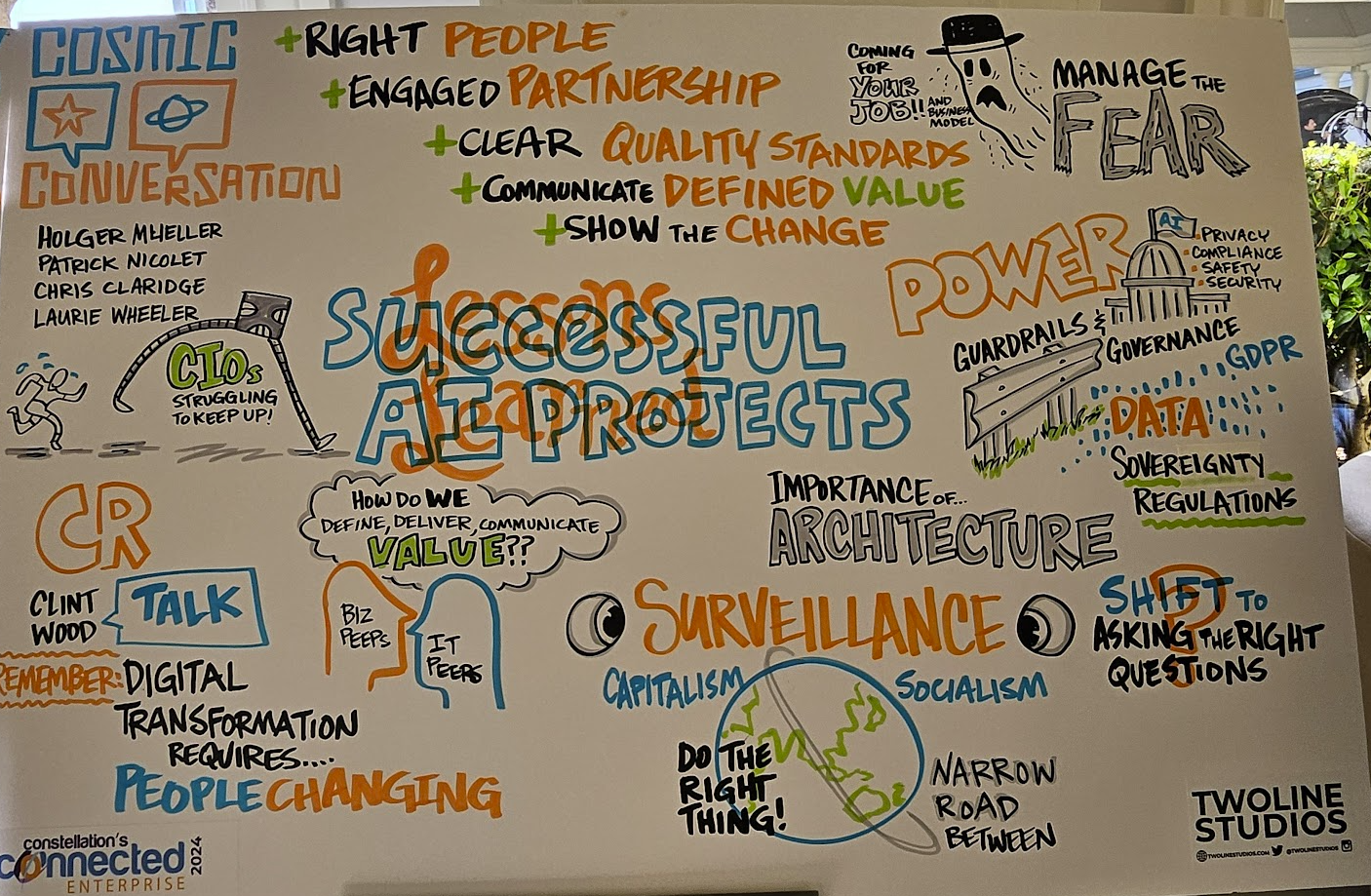Enterprise artificial intelligence projects--generative AI, agentic and everything in between--will often depend on old-school IT management techniques.
Here's a look at some of the takeaways from successful AI projects from a panel at Constellation Research's Connected Enterprise.
It's all about value and use cases. Laurie Wheeler, Chief Operating Officer, Information Services & Technology at MultiCare Health System, said AI projects need to be very clear about use cases and the value expected.
Find a champion. Wheeler, a BT150 inductee, said the projects have done well have featured a "great partnerships with operations." "Having a physician champion was critical to success," said Wheeler.
- 2025 in preview: What Constellation Research’s analysts say
- BT150 Spotlight: Sunitha Ray on the difference between enterprise AI and genAI
- The art, ROI and FOMO of 2025 AI budget planning
- 13 artificial intelligence takeaways from Constellation Research’s AI Forum
- Enterprises leading with AI plan next genAI, agentic AI phases
Don't be wedded to a technology or ideology. Chris Claridge, Chair of Trust Alliance NZ, said stakeholders need to be future oriented but leave technology ideology at the door. "You want people who are open enough about digital identity, fabric ontologies and choose vendors that allow interoperability," said Claridge.
Expectations. Patrick Nicolet, Chairman of Linebreak, said expectations need to be set with AI projects and there's a balance between what can be done and the art of the possible. Wheeler added that you can set expectations to hit a particular metric, but be prepared to be surprised at times.
Standards and quality matters. Wheeler added that champions also help with creating standards and then upholding them as a project scales.
Be prepared to manage fear. Claridge said AI projects often have a tangible fear about job loss attached to them. "That fear causes enormous concerns and fear," he said. "Managing the disruption of this technology is going to be a major issue. It is incredibly disruptive once you start to deploy and scale."

Cultural change. "What's different about AI is that we've been trained to bring answers to questions," said Nicolet. "AI is the opposite. We have to be good at asking the right question and have lots of answers. You really have to shift and that's challenging for any organization."
Claridge agreed and noted that organizations' purpose will be challenged by AI. "Organizations will have to challenge why they exist. AI is going to change the way data moves around and the actual activities of the organization," he said.
Change management. All the panelists said that change management is the secret sauce to AI projects. The communication has to be digestible to end users and people need to be reassured about their jobs. Keep in mind, however, that some of those fears are warranted.


